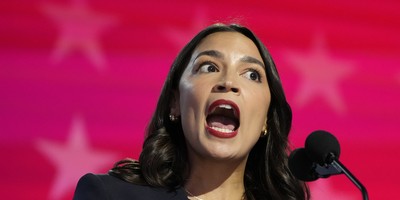By Jonathan H. Adler and Michael F. Cannon
Three years ago, we blew the whistle on the government behavior now being challenged in multiple Obamacare lawsuits, including
Contrary to their characterization, plaintiffs Halbig and King do not challenge the Patient Protection and Affordable Care Act, much less attempt to “repeal or invalidate” it. The plaintiffs claim the clear language of the act exempts them from the law’s mandates, yet the government is subjecting them to those taxes anyway. They are asking the government to follow Obamacare, not strike it.
Nor are these cases “a joke.” The plaintiffs won before one appellate court (Halbig) and lost before another (King). Even the latter court found “a literal reading of the statute undoubtedly accords more closely with [the plaintiffs’] position,” and the government’s position is “only slightly” stronger.
Nor is the statute “vague.” Obamacare lets the government pay some people’s insurance premiums, and impose its mandate taxes on certain employers and individuals, but only in states with a health-insurance exchange that, quoting the law, was “established by the State.” There is nothing vague about that language, which Congress used repeatedly and consistently. There is nothing in the statute inconsistent with it, or suggesting Congress understood it to mean anything other than what it says. The plaintiffs live among the 36 states that did not establish exchanges. They are exempt from those taxes.
Recommended
Nor does the statute support a contrary interpretation “when read in its entirety.” Tellingly, the economists cite no statutory language authorizing the government to tax the plaintiffs. Nor do they offer contemporaneous statements from the law’s authors supporting their reinterpretation.
Nor is the claim that Congress intended to withhold subsidies in those 36 states “absurd.” Withholding federal subsidies in uncooperative states is how Congress sought to induce states to implement Obamacare’s other major coverage expansion, too. As enacted, the legislation threatened to withhold 12 times as much funding — and to deny health coverage to the poorest of the poor — in states that did not expand their Medicaid programs. As we write, Obamacare is revoking exchange subsidies from hundreds of thousands of enrollees based on residency status and income.
No Obamacare supporter wanted to take coverage away from the poorest of the poor. Yet not even Mr. Aaron, Mr. Cutler or Mr. Orszag could deny that is precisely how Congress intended the law to operate.
Nor is it “absurd” to argue Congress would delink exchanges from the mandates and subsidies necessary to make them work. In court briefs, Mr. Aaron and Mr. Cutler admit Congress did exactly that in all U.S. territories.
Another signer of those briefs, the law’s chief architect Jonathan Gruber, further demonstrated the idea’s plausibility when, after the law was enacted but before this provision became a liability, he repeatedly told audiences, “If you’re a state and you don’t set up an exchange, that means your citizens don’t get their tax credits.”
In 2010, Mr. Aaron and Mr. Cutler joined dozens of scholars who admitted Obamacare was “imperfect,” but urged reluctant House Democrats to pass it anyway because (1) they thought Obamacare would prove popular, (2) “the allocation of premium subsidies” and “other limitations” of the bill “can be addressed through other means,” and (3) the alternative was no bill at all. Perhaps they believed the bill’s popularity would guarantee Democrats would continue to control Congress and make any needed changes.
It didn’t work out that way. Rather than rely on democracy to fix things, the trio is promoting something much worse than a bad health care bill; namely, the creation of new taxes and government subsidies outside the legislative process.
The Halbig and King plaintiffs make a startling yet credible case that with each passing month, the government is unlawfully handing billions of taxpayer dollars to private insurance companies, and subjecting more than 50 million Americans to illegal taxes. Agree or disagree, the need for final resolution of these cases is obvious and pressing. Only the Supreme Court can provide it.
The government’s allies know the longer it takes to resolve these cases, the more Americans will become dependent on those payments, which will prejudice the courts against the plaintiffs. To avoid prejudice, the Supreme Court should review King immediately, without waiting for lower courts to readjudicate Halbig.
This article appeared on Washington Times

























Join the conversation as a VIP Member